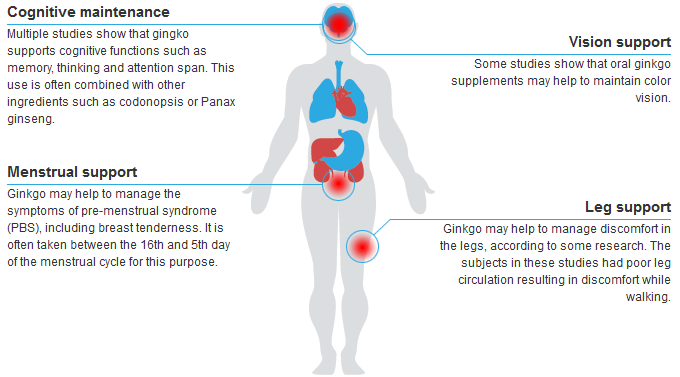 Ginkgo biloba is a tree that is commonly known as just ginkgo and the maidenhair tree. It is considered a living fossil since it is the only tree in its taxonomic division and its fossil record goes back 270 million years. Ginkgo is native to China, although it has been cultivated elsewhere in Asia since antiquity.
Ginkgo biloba is a tree that is commonly known as just ginkgo and the maidenhair tree. It is considered a living fossil since it is the only tree in its taxonomic division and its fossil record goes back 270 million years. Ginkgo is native to China, although it has been cultivated elsewhere in Asia since antiquity.
Ginkgos are initially slender, although the crown broadens as the tree ages. Mature trees can reach a height of 164 feet and usually grow deep roots that allow them to resist damage from wind and snow. Ginkgos can be extremely long-lived due to a combination of wood that resists insects and disease and the ability to sprout easily.
Ginkgos are very widespread for several reasons. They have a special significance in Buddhism and Confucianism and are routinely planted at these temples. Ginkgo also has multiple uses as food and in herbal medicine, especially in Asia.
Ginkgo extract has an unusually large number of pharmaceutically active compounds. These include terpene trilactones such as ginkgolides A, B, C, and J as well as various bilobalides. Additional components of ginkgo extract include flavonoid glycosides such as myricetin and quercetin. The plant also contains alkylphenols, biflavones, phenolic acids, polyprenols, and proanthocyanidins. Specific compounds in gingko include 4-O-methylpyridoxine and 6-hydroxykynurenic acid.
The most prominent use for ginkgo extract is for cognitive function. It may also support other functions such as vision, menstruation, and walking.
Multiple studies show that ginkgo supports cognitive functions such as memory, thinking, and attention span. This use is often combined with other ingredients such as codonopsis or Panax ginseng.
Ginkgo may help to manage the symptoms of pre-menstrual syndrome (PBS), including breast tenderness. It is often taken between the 16th and 5th day of the menstrual cycle for this purpose.
Some studies show that oral ginkgo supplements may help to maintain color vision.
Ginkgo may help to manage discomfort in the legs, according to some research. The subjects in these studies had poor leg circulation resulting in discomfort while walking.

The decline in cognitive function due to reduced blood flow to the brain is generally the most significant sign that you may need ginkgo. These signs primarily include memory problems, but also difficulties in concentration and mood changes. Discomfort while walking and unusual sensitivity to cold in the extremities are some of the specific physical indications that you could benefit from ginkgo. Additional signs that you may need ginkgo include headaches, dizziness, and ringing in the ears.
Ginkgo biloba, ginkgo extract

In our pursuit of vibrant health, many of us strive for a balanced diet packed with nutrient-rich foods. However, even the most wholesome diet may still leave us lacking in essential nutrients, particularly Omega-3 fatty acids. Healthy Eating is O...

Heart Health Trans-Resveratrol Background and Benefits Trans-resveratrol is a chemical known scientifically as 3,5,4'-trihydroxy-trans-stilbene. It is classified as a stilbenoid, which is a type of phenol. Trans-resveratrol is produced by several species of plants, typically in response to injury...

Support For Mental Alertness Green Tea Extract Background and Benefits Green tea extract is derived from the green leaves of the tea plant, scientifically known as Camellia sinensis. It has been an essential herb in traditional medicine for centuries, especially in China and India. Green tea extr...
Shipping calculated at checkout